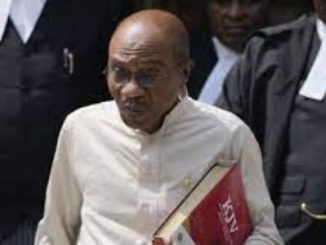
The Governor of the Central Bank of Nigeria (CBN), Olayemi Cardoso has said that the apex bank under the immediate past governor, Godwin Emefiele lost focus from its core mandate.
Cardoso disclosed this at the annual bankers’ dinner and 60th anniversary of the Chartered Institute of Bankers of Nigeria (CIBN) in Lagos State on Friday.
He said that the previous administration pumped N10trn into quasi-interventionist activities that were not the areas of strength of the apex bank.
“I am aware that events over the past few years have also put the CBN in a bad light. These issues can be attributed to various factors such as corporate governance failures, diminished institutional autonomy of the Central Bank of Nigeria, a deviation from the core mandate of the bank, unorthodox use of monetary tools and inefficient and opaque foreign exchange market that hindered clear access, a foray into fiscal activities under the cover of developmental finance activities and there was also a lack of clarity in the relationship between fiscal and monetary policies amongst other challenges.
“Hitherto, the CBN has strayed from its core mandate and engaged in quasi-fiscal activities that pumped over N10trn in the economy through different initiatives in sectors ranging from agriculture, power, and many others. These clearly distracted the bank from achieving its own objectives and took it to areas where it had limited expertise.
“Under my leadership, the Central Bank of Nigeria will vigorously address these issues.
“The primary mandate of the CBN is to ensure price stability in addition to other objectives such as issuing legal currency, safe-guarding external reserves, promoting a sound financial system and providing economic and financial advice to the government.
“In line with our strategy to focus on its core mandate, the CBN will discontinue direct quasi-interventionist activities and instead utilise orthodox monetary policy tools for implementing monetary policies,” he said.
Cardoso said that commercial banks in the country will be directed to increase their capital base.
“Considering the policy imperatives and the projected economic growth, it is crucial for us to evaluate the adequacy of our banking industry to serve the envisioned larger economy.
“It is not just about the stability of the financial system at the moment as we have already established at the current assessment to show stability.
“However, we need to ask ourselves: will Nigerian banks have sufficient capital relative to the finance system needed in servicing a $1trn economy in the near future? In my opinion, the answer is ‘No’ unless we take action.
“Therefore, we must make difficult decisions regarding capital adequacy. As a first step, the Central Bank will be directing banks to increase their capital,” Cardoso said.



Be the first to comment